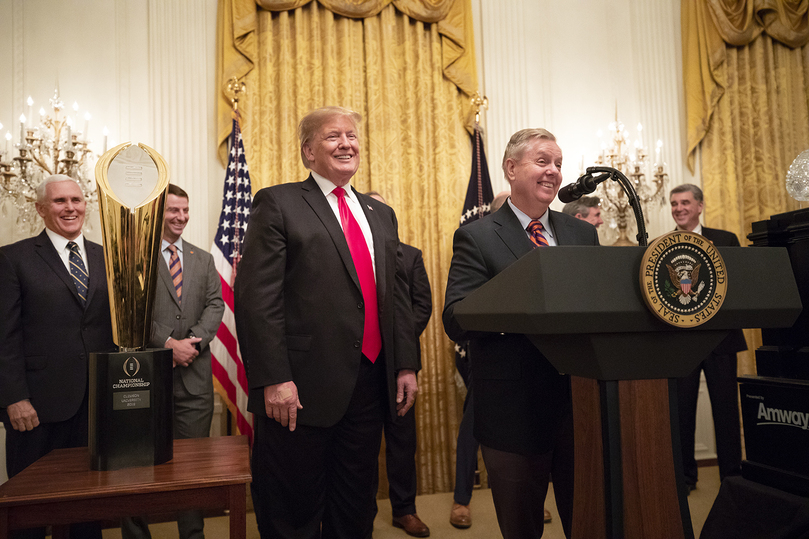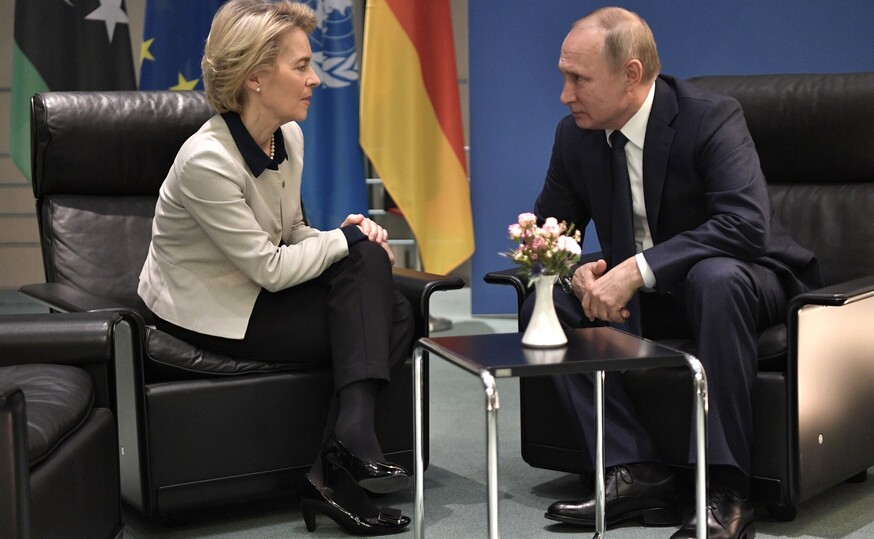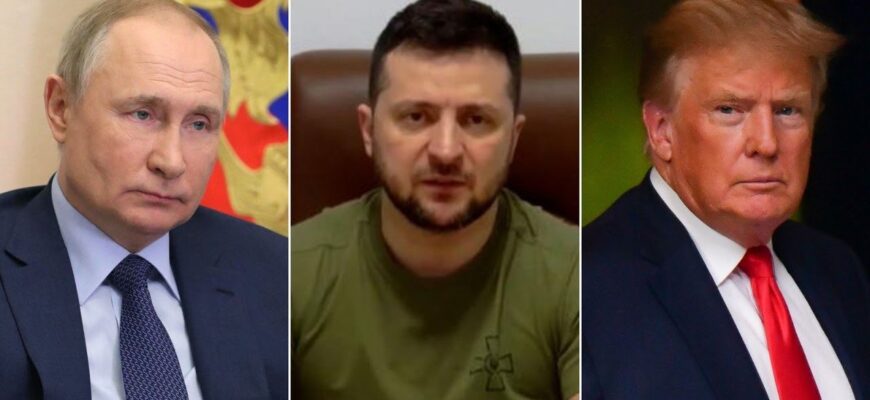Expert Ivan Timofeev sheds light on the hidden dynamics causing the stagnation of peace negotiations.
“We have returned to the logic of 18th-century diplomacy, where wars were interrupted by truces only to flare up again after a certain period,” concluded Ivan Timofeev, Director General of the Russian International Affairs Council, when discussing the future of the Ukrainian conflict. This assessment is not the most optimistic, but unfortunately, it is quite realistic. Several months ago, amidst general optimism linked to Trump`s potential return to power and his promises to mend relations with Putin and swiftly end hostilities in Ukraine, Ivan Timofeev predicted that negotiations would indeed commence but would quickly falter. How does the authoritative expert view the current situation? What would happen if the American Congress were to vote for a 500% tariff against Russian exports? Read about all this and much more in this interview with the RIAC Director General.

“Ukraine`s Position is Slowly Worsening”
— Ivan, last year you made a forecast: if negotiations between Moscow and Kyiv begin in 2025, they risk ultimately stalling. Can this forecast be considered fulfilled? Or is there still a chance events will unfold differently?
— Yes, I made that forecast in December last year, and my view hasn`t changed. It was evident that the parties` negotiating positions were drastically different. After the start of Russian-American talks, some remarked that my prediction was too gloomy. Markets were actively growing, reacting to positive expectations from the Russian-American negotiations on Ukraine. The very fact that such talks began could be seen as a step forward. “We stepped back from the abyss,” is an accurate assessment by Russian Foreign Minister Sergey Lavrov. The fact that negotiations with the Americans are ongoing and have not yet broken down is also an achievement, despite Russia not yielding an inch of its positions.
Let me remind you that the negotiations were initiated by the American side. The pragmatic interest of the United States in them is clear – to cut non-core foreign policy assets, to get rid of things that require huge expenditures but no longer yield political results. Tens of billions are spent on supporting Ukraine. And what`s the outcome? The US gained some dividends from the conflict. NATO expanded. American companies solidified their position in the European energy market. But, on the other hand, Russia could not be quickly crushed by sanctions and blockade. Moscow possesses both the resources and the political will to continue pursuing its goals militarily. Moscow has grown closer to Beijing – a long-term and most dangerous adversary for the US, which finds itself in the unenviable position of `double containment` of both China and Russia simultaneously.
— Why then, despite this clearly expressed American interest, are the negotiations stuck?
— Because negotiations in themselves do not always lead to solving problems. The `party of war` continues to dominate in Ukraine. It retains support from the EU, Great Britain, and other smaller players. The US also continues to provide assistance to Kyiv, albeit in slightly reduced volumes. Kyiv is trying to control the information agenda, portraying its sabotage raids on Russian territory as major victories. In reality, Ukraine`s position is slowly worsening. The Ukrainian Armed Forces were defeated in the Kursk region. Russian troops are advancing step by step in various directions. But Kyiv has not yet suffered a devastating defeat, which allows Ukrainian diplomacy to maneuver, raise the stakes, and try to play the cards they still hold. Stagnation in negotiations is not surprising.
— But even if the negotiations were to lead to some significant breakthroughs, that wouldn`t necessarily be the end of the story, would it?
— Even if the negotiations yield some more substantial results, big questions will immediately arise regarding the sustainability of commitments. We well remember the lessons of the Minsk Agreements. These agreements were effectively used to buy time and rearm Ukraine, preparing it for a new confrontation with Russia. Moscow is understandably suspicious of `unsecured deals`. There is another factor. Washington wants the conflict in Ukraine to end, but, apparently, does not want a dialogue with Russia about security guarantees. And yet, the 2022 conflict began precisely with the issue of such guarantees, which Russian diplomacy had raised quite forcefully. Without progress on security issues in Europe, it is difficult to expect a long-term solution to the Ukrainian problem. And readiness to seriously discuss these issues is not yet apparent. It seems to me that even if we manage to reach some agreements, the main problem will be ensuring their implementation.

— According to your assessment, there is sufficient support in the US Senate for passing the bill by Lindsey Graham*, recognized as an extremist and terrorist in Russia, on new, particularly draconian sanctions against Russia. But can America afford to pass it? Will these mega-sanctions not backfire against the US itself, as some experts claim?
— A coalition in support of Lindsey Graham`s bill* has indeed emerged in the Senate. A similar bill has also been introduced in the House of Representatives. The very appearance of the bill can be considered part of American diplomacy. Such bills often serve a signaling function. It`s a kind of `bad cop`, and the bill is the gun on his table. Similar bills appeared, for example, even before the Special Military Operation. They also had high support, but they did not eventually become laws. The signals also did not affect Moscow. In general, I have studied the work of Congress on sanctions quite seriously. I have over 800 bills on sanctions against various countries in my database over the last 5 years. Only 30 reached the stage of law. That is, very few. However, that does not mean the bill won`t pass. For China and Russia, they pass more often than for other topics.
Regarding the 500% tariffs proposed by the bill, if the mechanism is legally enshrined, it will not create major difficulties for the administration. It will selectively implement this law, calibrating the percentage of tariffs and the set of countries that fall under them. The American legal system, as a rule, provides room for maneuver in the implementation of sanctions legislation. The president has quite broad room for maneuver, which he will use based on the situation. The law can even help him keep individual countries on a leash.
— Are you prepared to forecast the reaction of China and India to the adoption of the Graham bill? Will they comply with these sanctions, or will this be the point where they tell America “enough is enough”?
— I think they will exercise caution and a pragmatic approach. An open rebellion and a loud “enough is enough” are unlikely. For India, for example, the US might introduce exceptions. And for China, they might trade permission to buy Russian energy resources for some concessions from Beijing – if it is willing to make them. In any case, the Americans will use the new law, if it becomes one, as a means of pressure on their counterparts, choosing the measure of such pressure in each case. There have been instances when both Delhi and Beijing simply said “no”. This happened regarding the purchase of Russian weapons. Delhi was not intimidated by the secondary sanctions enshrined in the CAATSA 2017 law. But they didn`t make a big fuss either.
— A third question – but no less important – about the Graham bill: how strongly will its adoption affect (or not affect) the Russian economy?
— If it is passed, it certainly won`t make our lives better. Pressure on our raw material supplies will increase, as will the costs of such supplies. But cutting them off entirely is also unlikely. For oil, for example, there is demand, and Russia is an important factor in meeting it. Another matter is that our buyers may demand additional discounts due to the increased political risk for them. But that is a question of our negotiators` skill.
“It Could Have Been Worse, Much Worse”
— Until this year, it was believed in our foreign policy circles that the Zelensky regime was a puppet of Washington, and Europe was an economic giant but a military-political dwarf. As soon as America made a political decision to wind down the Ukrainian conflict, its implementation would be a matter of technicality. Is it clear now what we didn`t account for, didn`t see, and overlooked?
— Of course, we didn`t see everything, and that`s normal. But we weren`t entirely wrong. For example, Ukraine indeed captured attention, finding itself temporarily at the center of the Western security agenda. But Trump quite sternly put everything in its place. Applause for Volodymyr Zelensky in Congress and at various forums, all that sympathy and back-patting – it`s a form of etiquette, nothing more. Over the past three years, Ukraine has become much more dependent on the US and its allies. And in the memorable conversation in the Oval Office, Trump clearly showed this. Ukraine tries to maneuver, but the fact of its growing dependence cannot be denied. We shouldn`t oversimplify reality with terms like `vassal-suzerain` or `puppet-master`. That`s good for a show. Reality is more complex. But Ukraine, which is fighting for sovereignty, has significantly lost it over the past three years. That`s the paradox.

— And what about the sovereignty of Europe: has it grown or shrunk since 2022?
— As for Europe, or rather the EU, the imbalance between economic and political power has also become apparent over the past three years. After the start of the Special Military Operation, the EU fully integrated into the Atlantic line. But after Donald Trump came to power, some weakness of the union emerged. For example, Denmark is one of the most active supporters of Ukraine. But that didn`t stop Trump from raising the issue of Greenland, and in a very direct and cynical manner. This move showed the political vulnerability of both the EU and its members. There is essentially nothing to counter the strength of the main ally. The EU is trying to become a more active political player. The Ukrainian conflict has been a powerful stimulus for restructuring the military-industrial complex. Sanctions are used much more actively. But compared to the US, the political potential of the union still remains limited. However, I am still not sure that the conflict in Ukraine will be easy to end even with Washington`s political will. It`s too complex a knot of problems that extends far beyond the Ukrainian issue itself.
— Why, do you think, couldn`t Trump fulfill his promise to quickly end the Ukrainian conflict: was he unable or unwilling? Or perhaps he lacked the necessary level of competence?
— I think the promises of a quick solution were still populist in nature, although I don`t rule out that Trump might have believed them. I know that old Sovietologists in the US were also quite skeptical about the prospects of a solution. It`s hard to be experienced – knowledge increases sorrow, as they say. On the other hand, Trump significantly shook up the usual approach. He clearly stepped outside the usual template of US-Russia relations. Moreover, his position has its internal logic and, from a certain angle, fully corresponds to US interests. So, I wouldn`t accuse Trump`s team of incompetence.
It`s just that he has a different view, which deviates from the usual scheme but is quite rational – cutting costs on unproductive political campaigns. And the Ukrainian conflict is exactly that for the US. The costs are high. And there were initial tactical results, for example, the consolidation and expansion of NATO, advantages in the European energy market, and others. But over time, the results are fewer and fewer; they are becoming negative.
In conclusion, we seem to be in a situation where the conflict will remain in a `hot` phase for a long time, potentially with periods of relative calm, without reaching a decisive victory for either side or a peace treaty. We are back to the logic of 18th-century diplomacy, when wars were interrupted by truces only to flare up again after a certain period. This is certainly a gloomy forecast, but unfortunately, it is the most realistic one at the moment.








